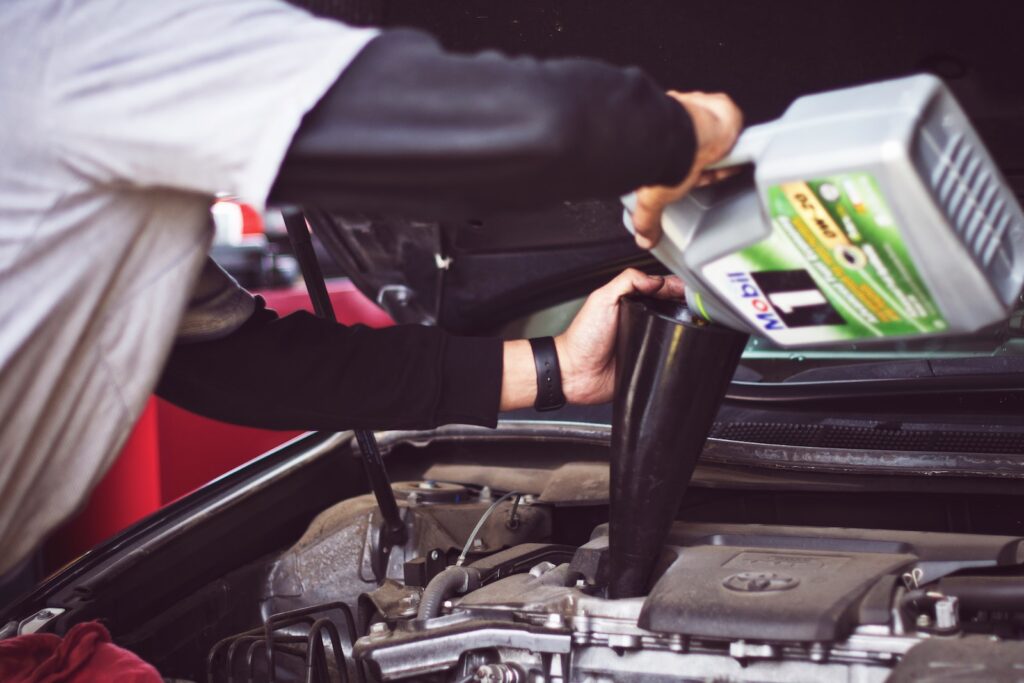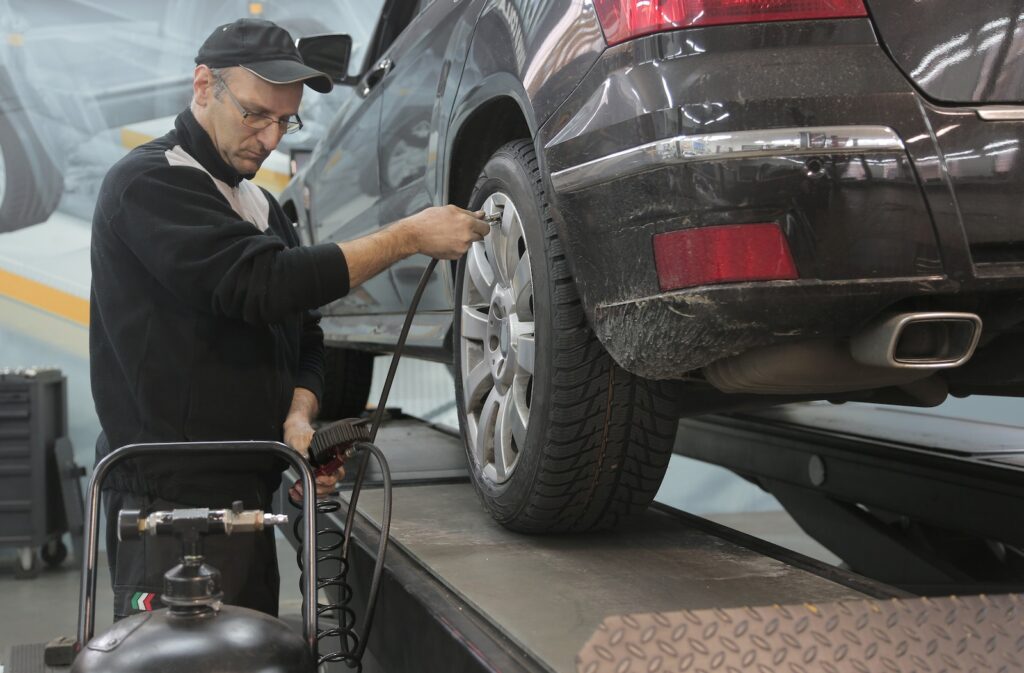Driving your car daily for your commute can affect its performance and longevity. However, with proper service and maintenance, you can ensure that your daily commute car stays in top shape, providing you with a smooth and reliable ride every day. But how can you ensure that your daily commute car service is done right?
In order to achieve a consistent and comfortable commute, there are several key practices drivers can adopt. These methods are pertinent to both veteran motorists and individuals who have recently embarked on the world of car ownership. Adherence to these maintenance strategies can lead to a noticeable improvement in vehicle longevity and a reduction in overall travel time, allowing commuters to navigate the complexities of traffic and transportation with increased confidence and less environmental impact.
Table of Contents
1. Regularly Check Fluid Levels
- Engine Oil: Monitor this to avoid damaging internal components.
- Transmission Fluid: Necessary for smooth gear shifts.
- Coolant: Prevents engine from overheating.
- Brake Fluid: Essential for effective braking.
In regions where temperatures fall dramatically, vehicle owners should pay increased attention to these fluid levels. Low temperatures can thicken fluids, hampers their effectiveness, and increase wear on vehicle parts. During winter, frequent checks can help ensure that fluids function properly.
It’s advisable to use fluids that are suitable for cold weather. Winter-grade engine oil, with its lower viscosity, helps with cold starts and maintains efficacious lubrication in freezing temperatures. Selecting an antifreeze coolant designed for lower temperatures can prevent the coolant from freezing, safeguarding the engine under harsh conditions. Regular maintenance of vehicle fluid levels will contribute to the extended durability and efficiency of the car.

2. Adherence to Manufacturer’s Maintenance Protocol
It is essential for vehicle longevity to abide by the service intervals prescribed by the auto manufacturer. This often encompasses:
- Oil and Filter Changes: Crucial for engine health.
- Component Inspections: Ensures early detection of wear.
- Regular checks help maintain vehicle dependability.
3. Monitor Tire Pressure and Condition
- Check Pressure Regularly: Ideal to check once a month with a reliable gauge.
- Inspect Tread Depth: Essential for maintaining proper traction.
- Look for Wear or Damage: Uneven wear can impact handling and safety.
- Replace Worn Tires: Crucial for preventing accidents and ensuring efficient fuel use.

4. Drive Smoothly and Avoid Aggressive Acceleration
- Consistent Speed: Maintains car’s condition.
- Gentle Maneuvers: Reduces engine and transmission stress.
- Steady Driving Style: Promotes vehicle longevity.
Adopting measured acceleration and braking fosters component durability, lessening wear and tear on the car’s vital parts during your commute.
5. Maintain Air Purity and Engine Health
- Engine Performance: Clean air filters ensure optimal airflow to the engine, maintaining power and efficiency.
- Fuel Economy: A clean air filter prevents unnecessary fuel consumption by allowing the engine to breathe easily.
- Inspection and Replacement: Follow the vehicle manufacturer’s guidance to check and refresh air filters routinely.
- Benefits: Contributes to sustained vehicle reliability and smoother operation on the road.
6. Heed Dashboard Indicators
- Critical Alerts: Act immediately when dashboard lights activate.
- System Monitoring: Vehicles track performance issues.
- Expert Consultation: See a mechanic for light-triggered diagnostics.
- Preventative Action: Tackling alerts early avoids major repairs.
Consulting a mechanic can prevent damage escalation and ensure vehicle safety.

7. Opting for Premium Fuel
Choosing high-quality fuel from esteemed service stations is crucial for a vehicle’s health and performance. Premium fuels are often synonymous with cleaner burning, which can:
- Enhance engine efficiency
- Minimize the presence of detrimental deposits
- Boost the overall power
Regular use of substandard gasoline may cause:
- Increased carbon deposits
- Overall drop in fuel economy
- Diminished engine power
For optimal vehicle functionality and a refined driving experience, investing in superior fuel grade is advisable.
If you want to find out more about how grades of gas affect vehicle performance check out this article: UNDERSTANDING GRADES OF GASOLINE AND HOW THEY AFFECT VEHICLE PERFORMANCE
8. Maintain a Clean Exterior and Interior
Ensuring your vehicle presents a spotless demeanor affects more than just its looks. Regular exterior cleaning and waxing shield the vehicle’s paint from environmental wear, while a tidy interior prevents the accumulation of dust that could hinder ventilation and air quality.
- Regular Wash: Wards off paint damage.
- Wax: Provides a protective barrier.
- Interior Cleanliness: Promotes fresh air circulation.
- Vehicle Value: Persists with cleanliness.
For those in colder regions, the importance of cleanliness escalates. De-icing substances and road salt can erode metal parts, notably the undercarriage. Being diligent about cleaning can stave off the corrosive effects on vital components such as brakes and fuel lines, which are especially susceptible to rust.
- Clean Undercarriage: Prevents rust and corrosion.
- Attention to Detail: Protects brakes and fuel lines from environmental chemicals.

9. Routine Car Battery Health Monitoring
Regularly inspecting your car battery’s condition is crucial, particularly in colder regions where low temperatures may impair its efficiency. Keep the battery contacts pristine and corrosion-free. For harsh cold environments, consider a battery warmer or insulating sleeve to preserve optimal battery warmth and ensure consistent starting during freezing weather.
Conclusion – Keeping Your Vehicle in Top Condition
Operating a well-maintained vehicle is vital for smooth and consistent commuting. It’s essential for drivers to regularly monitor their vehicle’s fluid levels and commit to the manufacturer’s recommended servicing intervals. Tire pressure should be checked often to ensure optimal performance and fuel efficiency. Adopting a gentler driving style can contribute to less wear and tear on the vehicle.
Choosing superior quality fuel can also make a difference in your car’s longevity and efficiency. Regardless of the climate, but especially in colder regions, these habits are crucial for a vehicle’s reliability and the driver’s enjoyment. Regular cleaning of the vehicle, both internally and externally, further supports its maintenance. By integrating these actions into their vehicle care routine, motorists can look forward to consistent and reliable transportation in their daily travels.
Frequently Asked Questions about Daily Commute Car Service
How much is car service per hour?
Car service hourly rates vary from $50 to $150 or more. In North America, the average hourly rate is around $80 to $100, similar to Canada. In Europe, rates differ by country, with Western European countries generally having higher rates than Eastern European ones. Factors such as service type, location, and provider influence the cost. Different mechanics may have varying rates, and vehicle make, model, and additional repairs also impact the overall cost.
How much does a car service costs?
Car service costs vary across regions. In North America and Canada, the average price ranges from $100 to $300 or more, depending on the specific service and location. In Europe, costs differ significantly between Western and Eastern countries, with Western European countries generally having higher prices. Factors like the type of service, vehicle make and model, and additional repairs or parts required influence the overall cost. Websites exist where you can input your vehicle’s details to receive an official service plan and estimated prices tailored to your area. These platforms offer convenient access to comprehensive service information and costs for your specific vehicle.
Is there a service that drives your car home?
Yes, there are services available that can drive your car home after a car service. After you drop off your car for a service or repairs at a designated location, a professional driver from the service provider will pick up your car and safely transport it to your desired destination once the service is completed. This eliminates the need for you to arrange transportation to pick up your car or wait at the service center. It offers convenience and saves you time and effort. These car pickup and delivery services can be particularly useful if you have a busy schedule or if the service center is not easily accessible for you. It’s recommended to check with your local service centers or search online for providers offering this type of service in your area.








